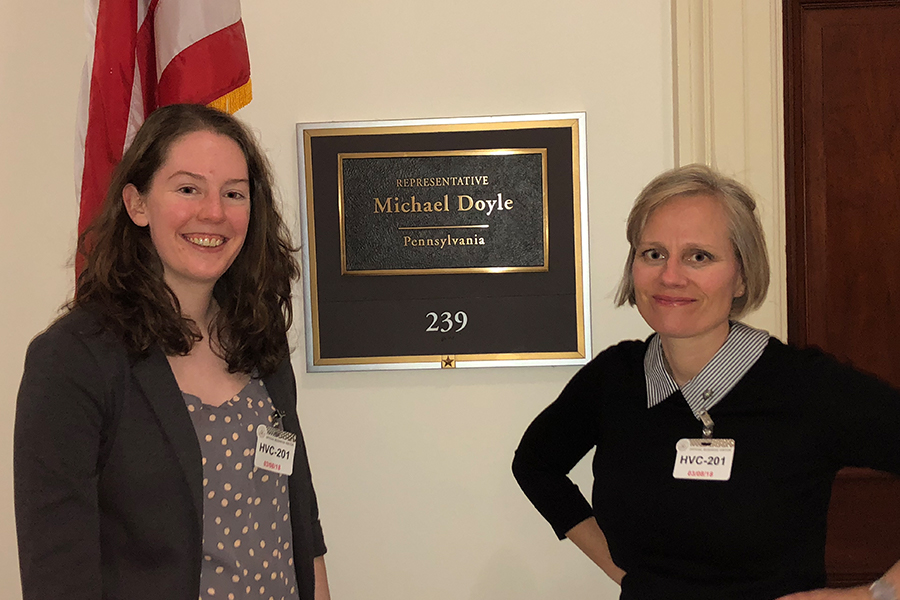
Psychology Graduate Selected As Early Career Policy Ambassador
By Stefanie Johndrow
Casey Roark, a graduate student in Carnegie Mellon University’s Psychology Department, was recently selected as an early career policy ambassador by the Society for Neuroscience.
The one-year program is open to scientists interested in science policy and advocacy, and provides them with the opportunity to interact with leading neuroscience advocates and the policymakers who make the decisions that determine the future of scientific research.
“To effectively advocate for science and federal funding, you have to know how to tell a story and get across a message about your research,” Roark said. “The Psychology Department is very invested in honing our presentation skills.”
As an Early Career Policy Ambassador, Roark traveled to Washington, D.C. on Capitol Hill Day to engage with members of Congress and their staff to advocate for an increase in the National Institute of Health (NIH) funding to maintain the research momentum and innovation. Congress has since agreed to increase the NIH funding by $3 billion.
“It’s nice to see our advocacy efforts having a direct impact,” Roark said. “It was so fun to tell our research stories and explain why federal funding for our research is crucial to support the work we do and the impact that our work has.”
Roark studies ways to simplify learning challenges—like grasping the sounds of a new language—for listeners.
“It is very rewarding to see Casey direct the skills she is gaining in her Carnegie Mellon graduate training toward science advocacy,” said Lori Holt, professor of psychology. “There is an ever-growing need to clearly convey our science to the public and to policy makers. We are very fortunate to have trainees like Casey take on this responsibility.”
Photo above: Pictured are Casey Roark and Alison Barth, professor of biological sciences, outside of Rep. Mike Doyle’s office.